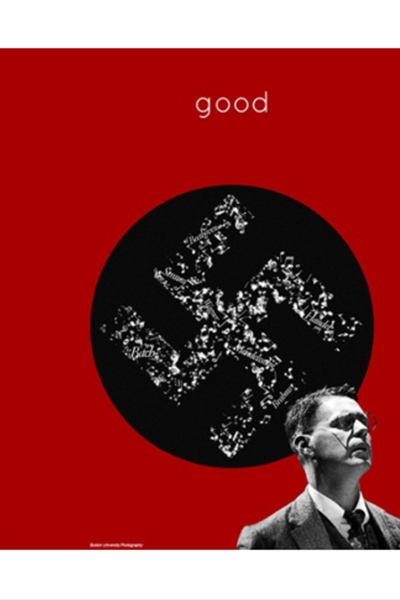
Critic Reviews (15)
“The stronger of the two is 'Good'...A stealthily constructed drama whose experimental use of music - as something that lives in the mind of its main character - doesn’t quite come off here. What does is the insidious way that morally abhorrent ideas and systems can grow to seem quite normal, their harms rationalized away by ordinary citizens who would rather not look ugliness in the face.”
Read more
"The production's touch isn't entirely sure—and Taylor certainly has no interest in being subtle—yet the play can still be distressingly effective...Petosa's production is deft in domestic scenes...The piece seems less certain when the text grows more stylized. Taylor wrote his work as a comic grotesque. Neither Petosa, nor set designer Evancho serves this element of Taylor's fantasy, which leaves some sections of the evening strangely sagging."
Read more
"Despite strenuous storytelling, it is easy to emerge from this production more confused than when it began…Director Jim Petosa occasionally achieves moments that are both beautiful and terrible in their theatricality...Mostly, the actors stand around aimlessly as one scene bleeds into the next. Moments of levity (like a high-kicking Hitler) land with a thud, leaving us to feel as though we're witnessing bargain-brand Brecht."
Read more
"Michael Kaye captures nearly everything about Halder...The actor shows how each of Halder's moral concessions is meant to be a one-off, a necessary accommodation to maintain his place in the world...And yet, 'Good' stops short of delivering a knockout punch...'Good' has always been a problematic piece. Yet, in its mordant depiction of truth's fungibility when dictators rule, it can still get under one's skin...It provided more than enough thoughts for a sleepless night."
Read more
"The greatest strength of the play is that almost none of Halder's choices appears to be unreasonable, except through the lens of hindsight available to the audience...What disturbs most about the play is its demonstration of how easily a 'good' person can become caught up in a movement that leads to horrendous consequences. Even as he dons the full uniform of a Nazi SS officer, Halder clings to the notion that he is serving a greater good."
Read more
“In the early 1980s, Taylor's choice to chronicle an ostensibly good man's activities as a member of the Third Reich in a play with frisky songs and bits of comedy was unorthodox. Thirty-five years later, that choice fits comfortably with a popular aesthetic of irony and snark; and the Brechtian detours in Taylor's script seem more insightful than audacious now."
Read more
"Kaye as Halder and Spears as Maurice draw us in immediately and we believe them and their choices...In the end, I walked out of the theater dissatisfied. I had the nagging feeling that I hadn’t gotten what I came in looking for. Until it struck me that I had come in looking for easy reassurances that it couldn’t happen to me and it couldn’t happen here...In the final analysis, that’s the subtle genius of this play...You will certainly be thinking about it long after you leave the theater."
Read more
"Director Petosa places the seductive dreaminess of romance, desire and self-satisfied ambition under the grip of a nightmare that sheds none of its savagery with the passing of time…John’s career-rise and morality-fall via what Maurice calls his 'Nazi school of psychiatry' are convincing…The play is elevated by a group of actors who are evidently committed to the work and to collaboration…Out of the two plays, 'Good' is the dominant force, but both are persuasive and worryingly topical."
Read more







